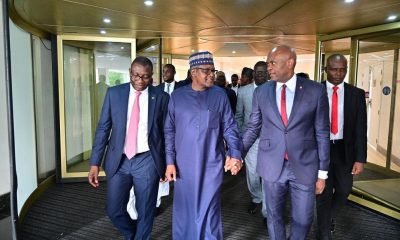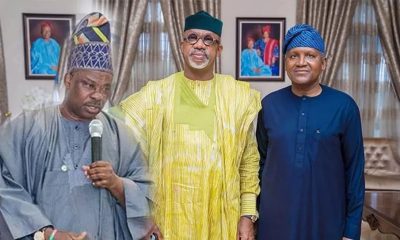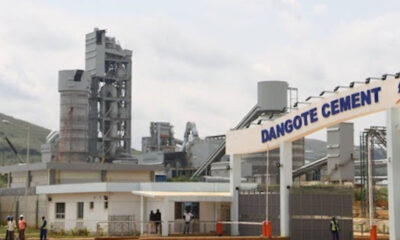Business
Sugar policy to earn Nigeria $700m yearly, says Dangote

Chairman, Dangote Sugar Refinery (DSR) Plc, Alhaji Aliko Dangote, yesterday urged government to faithfully implement the national backward integration policy in the sugar industry as the implementation will bring foreign exchange of up to $700 millon yearly from sugar production self-sufficiency.
Speaking yesterday at the 15th annual general meeting (AGM) of the company in Lagos, Dangote said that allowing for distortions in the sugar masterplan framework will adversely affect the target of the nation attaining self-sufficiency as projected.
He described the backward integration policy (BIP) as a commendable policy which will not only reduce imports of raw sugar but save the nation’s enormous foreign exchange used for importation.
He expressed delight that the BIP in the sugar industry is going on well, noting that if the National Sugar Master Plan is followed strictly and the players follow the rules, the country will be better for it as Nigeria will save between $600 million and $700 million annually in foreign exchange.
He stated that the backward integration policy of DSR is recording appreciable progress even as he declared the company’s irrevocable commitment to the policy.
Addressing the shareholders, Dangote said that despite the disruptions in the economy occasioned by the COVID-19 pandemic, Dangote Sugar Refinery has announced an increase in production volume which rose by 13.7 per cent to 743,858 tonnes in the financial year ended December 31, 2020, compared to 654,071 tonnes in 2019.
He stated that the company posted a group turnover of N214.3 billion a 33 per cent increase over the N161.1 billion in 2019, while in the same period the sugar group also posted a 6.9 percent increase in sales volume from 684,487 tonnes in 2019 to 731,701 tonnes in 2020. Gross profit increased by 40.4 per cent to N53.75 billion, compared to N38.29 billion in 2019 while Group profit after taxation for the year increased by 33.2 percent to N26.70 billion as against N22.36 billion in 2019, reflecting management’s unrelenting goal to deliver consistent shareholder value.
Therefore, the board of the company declared a dividend payment of N18.22 billion to the shareholders, amounting to N1.50 kobo per ordinary share of 50k each.
According to him, the improvements were attributable to operations optimization strategy despite disruption caused by civil unrest in last quarter of the year.
“Our growth continued to benefit from the sustained efforts to drive customer base expansion and several trade initiatives and investments,” Dangote said.
He said the company has revised its sugar production target to 550,000 metric tonnes achievable by 2024 in line with the revised plan on the BIP by the federal government.
Group Managing Director, Dangote Sugar Refinery (DSR) Plc, Mr. Ravindra Singhvi, said the sugar group continued on the growth path with commitments to improve performance and generate value for all stakeholders.
He explained that this was reflected in the sales volume delivery of 731,701 tonnes, and production of 743,858 tonnes being 6.9% and 13.7% increase in volumes over the comparative year 2019.
He said the company would ensure all hands are on deck to meet the targeted 550,000tonnes projected to be achieved by 2024.
“Our Backward Integration goal is to become a global force in sugar production, by producing 1.5M MT/PA of refined sugar from locally grown sugar cane for the domestic and export markets.
“Our focus on the implementation of our key strategies in the face of the several challenges posed by the COVID-19 Pandemic, the peculiarities of the Apapa traffic situation amongst others we achieved a topline growth in revenue of N214.30 billion, a 33.0 per cent increase over 2019; a 53 per cent increase in profit before tax, and 33.2 per cent increase in profit after tax.
“2020 was indeed very eventful for our company ranging from the weak macroeconomic fundamentals caused by the underlying impact of COVID-19 pandemic which saw to the steady rise in forex rate, high inflation and the significant rise in our cost of production, to the worsening traffic gridlock on the Apapa Wharf Road which led to delays and at times disruption of the distribution and deliveries to customers,” Singhvi said.
He noted that one of the key highlights of during the year was the successful completion of the Scheme of Arrangement for the merger between Dangote Sugar Refinery Plc (DSR) and Savannah Sugar Company Limited (SSCL) with effect from September 1, 2020, to operate under one unified entity.
“We are confident the merger will enable us to achieve operational, administrative and governance efficiencies resulting in increased shareholder value. We will continue to pursue our Backward Integration Projects, and other key initiatives to grow our sales volumes, market share, optimize cost and operational efficiencies,” Singhvi said..
President, Association for the Advancement of the Rights of Nigerian Shareholders (AARNS), Dr. Farouk Umar commended the management of DSR for the impressive performance of the company despite the hiccups in the year 2020.
He said the shareholders expected more robust results next year since the economy is already picking up, noting that for the company to have performed excellently under pandemic, then next year will be greater for all.
Founder, Independent Shareholders Association, Sir Sunny Nwosu said the management of DSR led by Dangote has never let the shareholders down for once pointing out that the management style is second to none, which has made the company to be growing steadily.
According to him, the way the company has been executing its BIP projects was also commendable as this will afford the company opportunity to meet target within it projected timelines.
Dangote Sugar Refinery is Nigeria’s largest producer of household and commercial sugar with 1.44M MT refining capacity at the same location. Its refinery located at Apapa Wharf Ports Complex, refines raw sugar imported from Brazil to white, Vitamin A fortified refined granulated white sugar suitable for household and industrial uses.
Dangote Sugar Refinery Plc acquired Savannah Sugar Company Limited, located in Numan, Adamawa State in December 2012, and embarked on the ongoing rehabilitation of its facilities and expansion of its 32,000 hectares’ sugarcane estate. In September 2020, the scheme of merger between DSR and Savannah Sugar estate was completed which gave birth to a bigger and stronger business with considerable opportunity for growth and delivery of superior benefits to all stakeholders. The expansion and rehabilitation of the sugar estate is still ongoing as well as the development of the greenfield site acquired at Tunga, Nasarawa State for the achievement of DSR’s sugar for Nigeria development master plan.
The Nasarawa Sugar Company Limited, is the registered subsidiary of Dangote Sugar Refinery Plc. The 78,136 hectares Sugar Project Site is located at Tunga, Awe Local Government Area, of Nasarawa State. Massive developments in agriculture, irrigation infrastructure amongst others is ongoing at the site. Unfortunately, Lau/Tau project is still on hold following the lingering compensation issue between the communities and Taraba state government.
Business
How to use $23bn forex reserves to stablise exchange rate, by Uwaleke

How to use $23bn forex reserves to stablise exchange rate, by Uwaleke
A financial expert, Prof. Uche Uwaleke has said the accretion of Foreign Exchange Reserves (NRER) at 23.11 billion dollars to Nigeria’s external reserves puts the Central Bank of Nigeria (CBN) in a stronger position to defend the value of the naira.
“The CBN can leverage rising external reserves to intervene in the forex market whenever it becomes necessary to stabilise the exchange rate,” Uwaleke said while arguing that the current size of the NER will positively impact on the value of the Naira.
Uwaleke, a Professor of Capital Market at the Nasarawa State University, Keffi, is also the President of the Capital Market Academics of Nigeria, however, raised concerns that the increase in the nation’s foreign reserves had been largely on account of temporary FX inflows such as Foreign Portfolio Investments (FPIs) and foreign loans.
He said that they represented unsustainable sources of growing external reserves.
“Impatient capital such as FPIs carry a lot of risks and have the potential of destabilising the economy whenever they leave the country.
“Against this backdrop, the government should pay more attention to diversifying the export base of the economy, especially via agriculture and solid minerals.
“The government should also create the enabling environment that attracts sustainable Foreign Direct Investments (FDIs) ,” he said.
READ ALSO:
- Heavy gunfire in FCT, police recover stolen cars, suspects arrested
- Residents of Lagos, Enugu face extreme heat, amid power issues
- 18 killed as flood wreaks havoc in parts of US
The CBN recently revealed that the NFER stood at 23.11 billion dollars at the end of 2024, their highest level in three years.
The apex bank said that the development signalled a major improvement in the country’s external financial position.
It said that the NFER, which adjusts gross reserves to account for near-term liabilities such as currency swaps and forward contracts, stood at 3.99 billion dollars at the end of 2023.
According to the CBN Governor, Yemi Cardoso, the improved position was due to substantial reduction in short-term foreign exchange liabilities, notably swaps and forward obligations.
Cardoso cited measures aimed at boosting forex market confidence and reserves, alongside increased non-oil foreign exchange inflows.
“This improvement in our net reserves is not accidental; it is the outcome of deliberate policy choices aimed at rebuilding confidence, reducing vulnerabilities, and laying the foundation for long-term stability.
“We remain focused on sustaining this progress through transparency, discipline, and market-driven reforms,” Cardoso said.
He said that Gross external reserves also climbed to 40.19 billion dollars at the end of 2024, up from 33.22 billion dollars the previous year.
“Reserves declined in the first quarter of 2025 due to seasonal factors and foreign debt interest payments, the CBN anticipates a steady uptick in reserves throughout the second quarter,” Cardoso said.
How to use $23bn forex reserves to stablise exchange rate, by Uwaleke
(NAN)
Business
Fuel prices to fall as global cost of crude drops
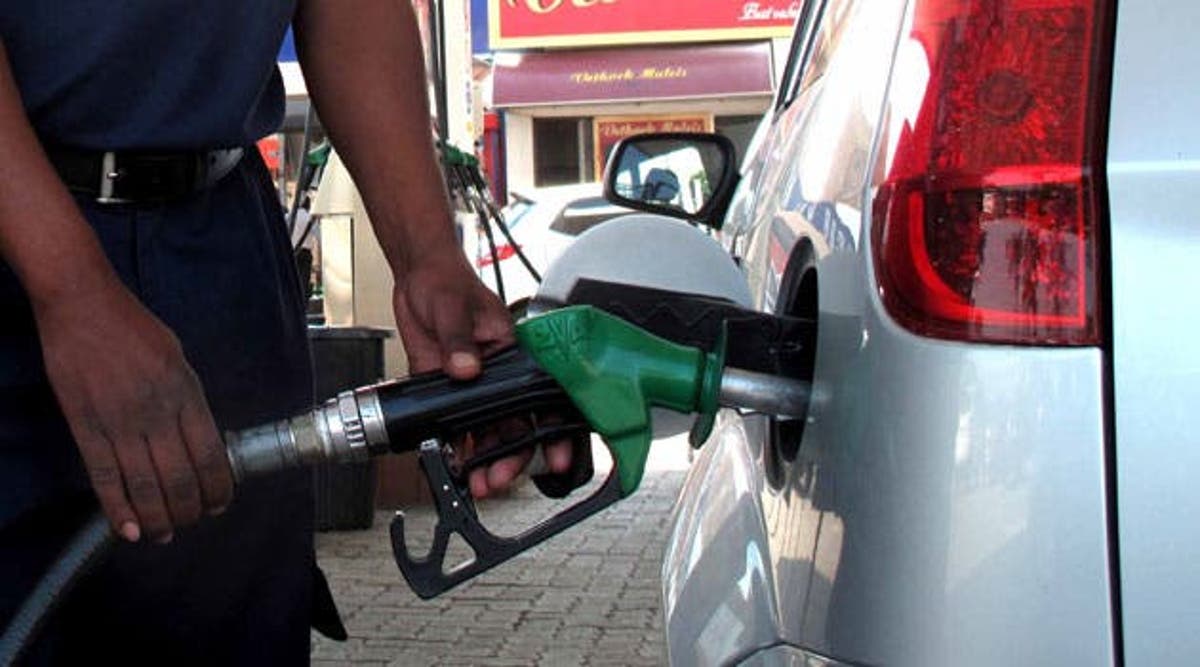
Fuel prices to fall as global cost of crude drops
Nigerians are expected to pay less for Premium Motor Spirit, also known as petrol, as the price of Brent dropped to $65 per barrel from $69.90 per barrel in the global market.
The price of Brent is used globally to benchmark the prices of other crudes. major feedstocks – and by extension petroleum products prices.
The development was partly fueled by the US President Donald Trump’s announcement of sweeping new tariffs.
This was reportedly fueled by the decision of the Organisation of Oil Producing Countries and its allies to increase oil output by 410,000 barrels per day starting May 2025 far above the 135,000 barrels originally planned.
A report by Vanguard stated that the depot prices of Mainland, A.Y.M and Ever have dropped to N918 per litre from N920 and N919 from N920 per litre, respectively.
Also, the depot prices of Prudent, Eterna and Soroman have dropped to N912 from N913 per litre, N897 from N900 per litre and N915 from N916 per litre, respectively.
READ ALSO:
- CBN injects $197.71m to boost FX as Trump trade tariff spreads
- Thousands protest in Spain over nationwide housing crisis
- Breaking: Former Oyo governor Olunloyo dies at 89
According to petroleumprice.ng, oil marketers would likely adjust their pump prices downwards as they get new supplies this week, if the current market condition persists.
The Vanguard report quoted the President of Petroleum Products Retail Outlets Owners Association of Nigeria, PETROAN, Billy Gillis-Harry, expressed optimism that the development would culminate in low costs of fares, goods and services if the fundamentals persist in the market.
Business
CBN injects $197.71m to boost FX as Trump trade tariff spreads

CBN injects $197.71m to boost FX as Trump trade tariff spreads
The Central Bank of Nigeria (CBN) has supplied $197.71 million to the foreign exchange market through sales to authorised dealers.
The apex bank’s director of financial markets department, Omolara Duke, disclosed this in a statement on Saturday in Abuja.
She noted that the intervention aligned with the apex bank’s ongoing commitment to ensuring adequate liquidity and supporting orderly market functioning.
According to Ms Duke, the move reflects the CBN’s broader objective of fostering a stable, transparent, and efficient foreign exchange market.
She said the decision was largely influenced by recent movements in the FX market, driven by the announcement of new U.S. tariffs and declining crude oil prices.
“The CBN has observed recent fluctuations in the foreign exchange market between April 3 and April 4.
READ ALSO:
- Thousands protest in Spain over nationwide housing crisis
- Breaking: Former Oyo governor Olunloyo dies at 89
- Anti-Trump protesters gather in cities across the US
“These are reflective of broader global macroeconomic shifts currently impacting several emerging markets and developing economies.
“These developments stem from the recent announcement by the United States government of new import tariffs on goods from several economies, triggering a period of adjustment across global markets,” she said.
Ms Duke said crude oil prices had dropped by over 12 per cent, falling to approximately $$65.50 per barrel, introducing new challenges for oil-exporting nations like Nigeria.
She said the CBN would continue monitoring global and domestic market conditions.
Ms Duke expressed confidence in the resilience of Nigeria’s foreign exchange framework, which is designed to adjust in line with evolving economic fundamentals.
“All authorised dealers are reminded to strictly adhere to the principles outlined in the Nigerian FX Market Code and uphold the highest standards in their dealings with clients and market counterparties,” she said.
CBN injects $197.71m to boost FX as Trump trade tariff spreads
(NAN)
-

 Education1 day ago
Education1 day agoErudite mass comm lecturer Oscar Odiboh becomes full professor at Delta State University
-

 metro2 days ago
metro2 days agoAutopsy reveals cause of Nigerian boxer death during fight in Ghana
-

 Entertainment2 days ago
Entertainment2 days agoA colleague raped me, Actress Lolo 1 alleges
-

 metro2 days ago
metro2 days agoScavenger killed, many injured as military grenade explodes in Lagos
-

 Sports2 days ago
Sports2 days agoWife of Manchester United goalkeeper, Onana, robbed of £62,000 handbag, Rolex
-

 metro21 hours ago
metro21 hours agoNurse leaves US, seeks new life in Nigeria, says everything not money
-
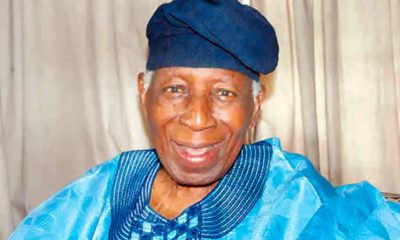
 metro1 day ago
metro1 day agoBreaking: Former Oyo governor Olunloyo dies at 89
-

 International2 days ago
International2 days agoTrump: VOA goes off air in Nigeria, Ghana, others

